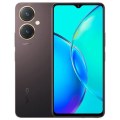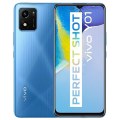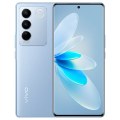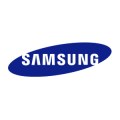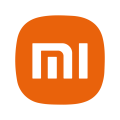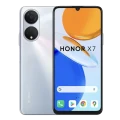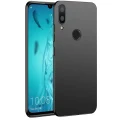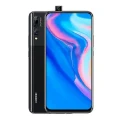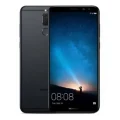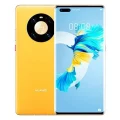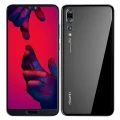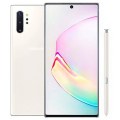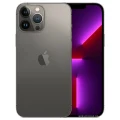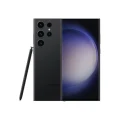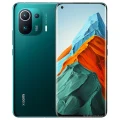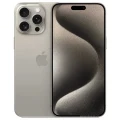- Awesome page
- Latest Mobile
- Smartphones
- Vivo X90 Pro+
Vivo X90 Pro+
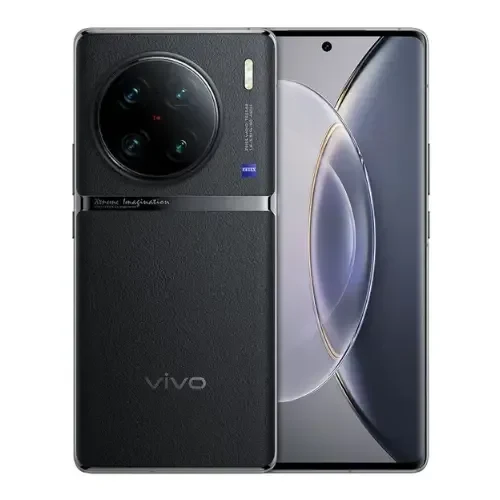


Vivo X90 Pro+ Price in Bangladesh
The Vivo X90 Pro+ is available in two variants: 256GB/8GB and 512GB/12GB ROM/RAM. The Vivo X90 Pro+ price in Bangladesh is 135,000 Taka. It features a 4700mAh battery with 80W fast charging support. Running on Android 13, the device is powered by the Qualcomm Snapdragon 8 Gen 2 (4 nm) chipset, ensuring top-notch performance.
Specifications
General
| Model | Vivo X90 Pro+ |
| Announced | 22-11-2022 |
| Status | Available |
| Official price | 135000 |
| Unofficial price | 12GB 256GB ৳1,35,000 / 12GB 512GB ৳1,45,000 |
Design
| Dimensions | 164.4 x 75.3 x 9.7 mm (6.47 x 2.96 x 0.38 in) |
| Weight | 221 g (7.80 oz) |
| Colors |
Black, Red |
Network
| Technology | GSM / CDMA / HSPA / EVDO / LTE / 5G |
| 2G Network |
GSM 850 / 900 / 1800 / 1900 - SIM 1 & SIM 2 DMA 800 / 1900 |
| 3G Network |
HSDPA 850 / 900 / 1700(AWS) / 1900 / 2100 CDMA2000 1xEV-DO |
| 4G Network |
LTE |
| 5G Network |
HSPA 42.2/5.76 Mbps, LTE-A, 5G |
| GPRS <strong>GPRS</strong> (General Packet Radio Service) is a packet oriented mobile data service on the 2G and 3G cellular communication system's global system for mobile communications (GSM), Generally, GPRS is used for the purpose of wireless data transfer, such as sharing pictures and videos or browsing the Internet via a mobile phone connection. | |
| EDGE <strong>EDGE</strong> (Enhanced Data GSM Environment) is a wireless network technology generally considered the next step in the 2G network offers data transfer rates up to four times faster than ordinary GSM networks, Generally, EDGE is used for the purpose of wireless data transfer, such as sharing pictures and videos or browsing the Internet via a mobile phone connection. | |
| Speed | HSPA 42.2/5.76 Mbps, LTE-A, 5G |
Display
| Display Type <strong>Display Technology => </strong> A number of display technologies and types used in mobile phones => TFT (Thin Film Transistor), IPS (In-Place Switching), OLED (Organic Light Emitting Diode), AMOLED (Active-Matrix Organic Light-Emitting Diode), Super AMOLED (an even advanced version of AMOLED), Resistive Touchscreen (Resistive touchscreens contain two layer of conductive material with a very small gap between them which acts as a resistance), Capacitive Touchsceen (Capacitive touchscreen technology consists of a layer of glass coated with a transparent conductor) | LTPO3 AMOLED capacitive touchscreen, 1B colors |
| Size | 6.78 inches, 111.4 cm2 (~90.0% screen-to-body ratio) |
| Resolution | 1440 x 3200 pixels, 20:9 ratio (~517 ppi density) |
| Features |
120Hz, Dolby Vision, HDR10+, 1800 nits (peak) |
Camera
Main camera
| Camera Setup | Quad |
| Primary <strong>Camera</strong> is able to capture photographs and usually videos, The most important characteristics of a camera are the resolution (measured in megapixels), lens focus type (fixed or automatic), higher megapixel cameras are known to capture higher quality photos, but not always a good measurement of the photos quality. |
50.3 MP, f/1.8, 23mm (wide), 1.0&quot;-type, 1.6µm, Dual Pixel PDAF, Laser AF, OIS 64 MP, f/3.5, 90mm (periscope telephoto), 1/2.0&quot;, 0.7µm, PDAF, OIS, 3.5x optical zoom 50 MP, f/1.6, 50mm (telephoto), 1/2.4&quot;, 0.7µm, PDAF, 2x optical zoom, gimbal OIS 48 MP, f/2.2, 14mm, 114˚ (ultrawide), 1/2.0&quot;, 0.8µm, AF |
| Features |
Zeiss optics, Zeiss T* lens coating, Pixel Shift, dual-LED dual-tone flash, HDR, panorama |
| Video | 8K, 4K@30/60fps, 1080p@30/60fps, gyro-EIS |
Selfie camera
| Camera Setup | Single |
| Primary <strong>Camera</strong> is able to capture photographs and usually videos, The most important characteristics of a camera are the resolution (measured in megapixels), lens focus type (fixed or automatic), higher megapixel cameras are known to capture higher quality photos, but not always a good measurement of the photos quality. |
32 MP, f/2.5, 24mm (wide), 1/2.8&quot;, 0.8µm |
| Features |
HDR |
| Video | 4K@30fps, 1080p@30fps |
Hardware
| Chipset <strong>Chipset</strong> is a group of integrated circuits designed to perform one or a more dedicated functions, often with real time computing constraints, Popular smartphones are equipped with more advanced embedded chipsets that can do many different tasks depending on their programming. | Qualcomm SM8550 Snapdragon 8 Gen 2 (4 nm) |
| CPU <strong>CPU</strong> (Central Processing Unit) mostly known as processors, CPU processes instructions in order to carry out certain functions that make your device operate properly. Processors are often described as the brain of computers, smartphones and tablets, Smartphones and tablets rely on processors to carry out their every task, Processors are an incredibly important factor in selecting any type of computing device, including your smartphone. | Octa-core (1x3.2 GHz Cortex-X3 & 2x2.8 GHz Cortex-A715 & 2x2.8 GHz Cortex-A710 & 3x2.0 GHz Cortex-A510) |
| GPU <strong>GPU</strong> (Graphics Processing Unit) is a single-chip processor designed to rapidly manipulate and alter memory to accelerate the creation of images in a frame buffer intended for output to a display, This includes things such as lighting effects, object transformations, and 3D motion. | Adreno 740 |
| RAM (Memory) <strong>RAM</strong> (Random Access Memory) is a type of computer memory that can be accessed randomly, any byte of memory can be accessed without touching the preceding bytes that allows information to be stored and accessed quickly from random locations. RAM is the most common type of memory found in computer systems, smartphones, tablets and other electronic devices. | 12 GB |
| Internal Storage <strong>Internal Storage</strong> is a data storage space (flash memory) mostly used in smartphones, tablets and other electronic devices where operating system, apps, music, photos, videos, files and other user data Is stored. | 256/512 GB UFS 4.0 |
| Sensors <strong>Sensors</strong> are electronic components that detects and responds to some type of input from the physical environment. The specific input could be light, heat, motion, moisture, pressure and location, The output is generally a signal that is converted to use in computing systems, a location sensor, such as a GPS receiver is able to detect current location of your electronic device. |
Fingerprint (under display, optical), accelerometer, gyro, proximity, compass, color spectrum |
Connectivity
| Bluetooth <strong>Bluetooth</strong> is a wireless communications technology for exchanging data between mobile phones, headsets, computers and other network devices over short distances without wires, Bluetooth technology was primarily designed to support simple wireless networking of personal consumer devices. | 5.3, A2DP, LE, aptX HD |
| Infrared <strong>Infrared</strong> connectivity is an old wireless technology used to connect two electronic devices. It uses a beam of infrared light to transmit information and so requires direct line of sight and operates only at close range. | |
| USB | USB Type-C 3.2, USB On-The-Go |
| GPS <strong>GPS</strong> The Global Positioning System is a satellite-based radio navigation system, GPS permits users to determine their position, velocity and the time 24 hours a day, in all weather, anywhere in the world, In order to locate your position, your device or GPS receiver must have a clear view of the sky. | GPS (L1+L5), GLONASS, BDS, GALILEO, QZSS, NavIC |
| NFC <strong>NFC</strong> (Near field communication) is a set of standards for smartphones and similar devices to establish peer-to-peer radio communications with each other by touching them together or bringing them into proximity, usually no more than a few inches. |
Battery
| Battery Type <strong>Battery Type => </strong> Cell phones run on various kinds of batteries depending on the manufacturer, phone size or shape and features. There are basically four types of cell phone batteries => Lithium Polymer, Lithium Ion, Nickel Metal Hydride and Nickel Cadmium. | Non-Removable Li-Po |
| Capacity <strong>Battery Capacity</strong> is a measure (typically in Amp-hr) of the charge stored by the battery, and is determined by the mass of active material contained in the battery. The battery capacity represents the maximum amount of energy that can be extracted from the battery under certain conditions. | 4700 mAh |
| Charging Charging | 80W wired, 100% in 33 min (advertised) 50W wireless Reverse wired |
Vivo X90 Pro+ Review: Redefining Smartphone Excellence
The smartphone landscape continues to innovate at lightning speed, and the newly launched Vivo X90 Pro+ stands as a testament to just how far mobile technology has come. Touted as Vivo’s most ambitious flagship yet, this device brims with state-of-the-art features, making it a strong contender in the premium smartphone market. But is the X90 Pro+ worth its hefty price, or does it falter amidst the competition?
This detailed review will take you through everything you need to know about the Vivo X90 Pro+, from its design and display to its performance and battery life. We’ll also compare how it stacks up against industry giants and highlight real user experiences to help you determine if it deserves your attention.
First Look at the Vivo X90 Pro+
The Vivo X90 Pro+ is available in two configurations—256GB/8GB RAM and 512GB/12GB RAM—and comes in at 135,000 Taka in Bangladesh. This flagship device is powered by cutting-edge hardware, including the Qualcomm Snapdragon 8 Gen 2 chipset, a 4nm powerhouse designed for performance and efficiency.
With Android 13 as its operating system and Vivo’s user-friendly OriginOS on top, the X90 Pro+ offers a seamless software experience. And with its 4700mAh battery and 80W fast charging, you can forget about being tethered to a charger all the time.
Design and Premium Build
At first glance, the Vivo X90 Pro+ impresses with its sleek design and premium build materials. A metal frame paired with glass panels ensures a sturdy yet stylish feel. The texture, weight distribution, and ergonomic edges make it easy to hold, while its polished finish screams sophistication.
The rear houses a distinctive camera layout, designed not just for aesthetics but also emphasizing its focus on photography (more on that later). While it’s durable, the metal-and-glass combination does result in a slightly heavier form factor at nearly 221 grams.
Pros:
- Premium, ergonomic design
- Distinctive rear camera module
- Feels luxuriously built
Cons:
- Slightly heavy
A Stunning Display
The 6.78-inch AMOLED display is a showstopper, with vibrant colors, deep blacks, and a sharp 3200×1440 QHD+ resolution. Whether you’re binge-watching your favorite Netflix series or scrolling through social media apps, the experience is ultra-smooth thanks to the 120Hz refresh rate.
HDR10+ support and an impressive peak brightness of 1800 nits ensure excellent daylight visibility, making it one of the most gorgeous screens in its class. For gamers and content creators, Vivo has struck the perfect balance between responsiveness and visual quality.
Key Display Features:
- Excellent color accuracy
- Ultra-smooth 120Hz refresh rate
- HDR10+ certified
Performance and Hardware
The Vivo X90 Pro+ is powered by the Qualcomm SM8550 Snapdragon 8 Gen 2 chipset, one of the most capable processors available right now. Paired with up to 12GB of RAM, multitasking feels effortless, apps load in an instant, and heavy-duty gaming is a non-issue.
On the storage side, you get either 256GB or 512GB, ensuring you won’t be running out of space anytime soon. Plus, with UFS 4.0 tech for blazing-fast read-write speeds, performance remains snappy.
When tested for gaming, titles such as PUBG Mobile and Genshin Impact ran at max settings without any hiccups. Vivo’s improved cooling system ensures the phone doesn’t overheat even during prolonged sessions.
Benchmark Results:
- AnTuTu Score (~1.3 million points)—one of the highest recorded!
- Geekbench Score (Single-core 1490, Multi-core 5100)—industry-leading performance
Photography Revolutionized
Without question, the camera is the Vivo X90 Pro+’s biggest selling point. This smartphone aims to redefine mobile photography, and it delivers on its promise.
- 50.3 MP main camera: Exceptional clarity, natural colors, and superb dynamic range
- 48 MP ultrawide shooter: Capture landscapes or group shots with minimal distortion
- 64 MP periscope telephoto lens: Produces breathtaking zooms up to 100x
- 32 MP front camera: Ideal for selfies and video calls
The X90 Pro+ shines in low-light scenarios, thanks to Vivo’s ZEISS T* coating technology and AI-assisted enhancements. Night shots are unparalleled, with reduced noise and excellent exposure balance.
While it doesn’t completely replace a DSLR, this flagship is arguably as close as you can get to professional-level photography on a smartphone.
Reliable Battery Life with Super-Fast Charging
A 4700mAh battery powers the Vivo X90 Pro+, which comfortably lasts an entire day with moderate to heavy use. Even when you’re running resource-heavy apps or taking extended Zoom calls, battery efficiency ensures you won’t need to scramble for a charger frequently.
And when you do, the 80W fast charging tops up the battery from 0% to 100% in less than 30 minutes. For added convenience, the device also supports 50W wireless charging.
Battery Highlights:
- 4700mAh (all-day usage guaranteed)
- 80W wired fast charging + 50W wireless charging
How It Stacks Up Against the Competition
The Vivo X90 Pro+ enters a fiercely competitive flagship market, holding its ground against heavyweights like the Samsung Galaxy S23 Ultra, Apple iPhone 14 Pro Max, and Google Pixel 7 Pro.
- Design: Comparable to flagships like the Galaxy S23 Ultra, but slightly heavier
- Display: Matches the iPhone 14 Pro Max for color accuracy while edging past it with a better refresh rate
- Camera: Vivo’s periscope lens gives it a competitive edge over most rivals for zoom shots
- Performance: The Snapdragon 8 Gen 2 ensures it stacks up against the fastest phones in 2024
- Battery: Slightly smaller capacity than the Pixel 7 Pro but faster charging
User Feedback
Tech experts describe the Vivo X90 Pro+ as “a bold experiment in premium design and flagship-grade features.” Users have praised its jaw-dropping camera, ultra-smooth software experience, and excellent build quality.
Some early adopters have called out the limited availability of certain software features outside of Asian markets, but patches and updates are expected to address these concerns.
Should You Buy the Vivo X90 Pro+?
The Vivo X90 Pro+ is undoubtedly one of the most feature-packed premium smartphones. Here’s how it suits different types of users:
- Tech Enthusiasts: If you’re looking for the latest and most powerful hardware, this is the real deal.
- Photography Lovers: Incredible camera tech makes it perfect for mobile photography.
- Everyday Smartphone Users: A bit expensive, but the performance and display make it worth it.
If you’re ready to invest in a premium, high-performance flagship device with exceptional photography capabilities, the Vivo X90 Pro+ deserves your attention.
